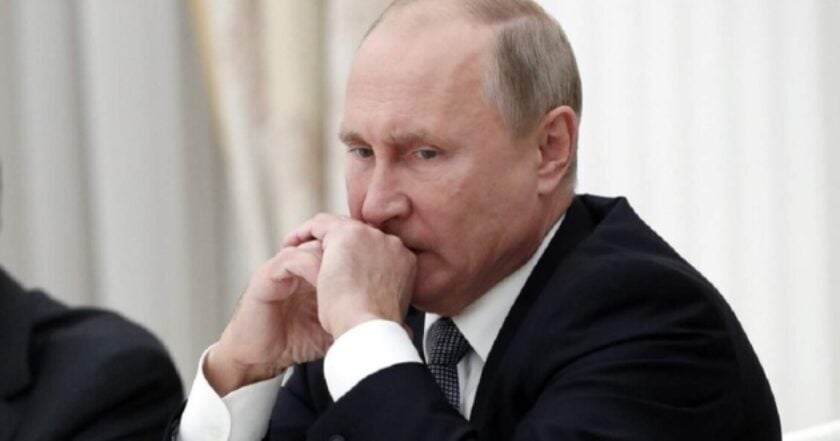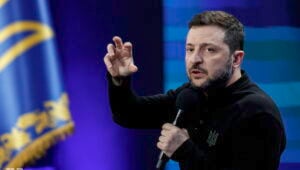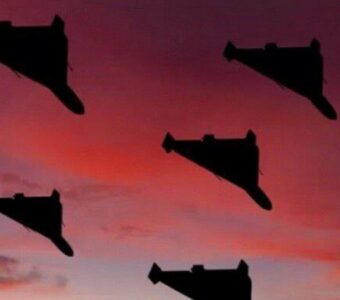Putin aims to create alternative to NATO – ISW

Photo: EPA
Russian leader Vladimir Putin plans to form an alliance of nations in an attempt to establish the association as a viable alternative to NATO.
The American Institute for the Study of War (ISW) reports this.
As American analysts pointed out, that refers to countries that have historically had strong relationships with the USSR. Therefore, just before his trip to Vietnam on June 19, Putin wrote an article for the Vietnamese state newspaper Nhân Dân, which contained similar points to the article he published in the North Korean state newspaper Rodong Sinmun on June 18.
"Putin referred to the historical memory of the Soviet Union's support to Vietnam during the Vietnam War, which he called a "heroic struggle against foreign invaders," and noted that today marks the 30th anniversary of the signing of the Treaty on the Basic Principles of Friendly Relations between Russia and Vietnam.
He praised Vietnam for pursuing an "independent foreign policy" and upholding a world order based on "the principles of equality among nations and non-interference in internal affairs," repeating his praise for North Korea on June 18 and 19.
The President of the Russian Federation also stated that, like North Korea, Vietnam shares Russia's views on the formation of a new system of "equal and indivisible Eurasian security"—although Vietnam, like most of Southeast Asia, is usually not included in political concepts of Eurasia," the report emphasized.
Thus, Putin laid the informational basis of the Eurasian security structure during his visit to China in May 2024 and then proposed it in a June 14 speech. At the time, he said that the "Euro-Atlantic security system" was collapsing and that Western "schemes of security and prosperity in Europe are not working."
Experts have concluded that the Russian dictator aims to create a coalition of countries that he could try to present as a real alternative to NATO. He also seeks to create the illusion that Western countries are the only supporters of Ukraine and that the rest of the world is behind Russia.
"Putin probably intends to use the historical memory of positive relations with the Soviet Union and previous assistance to other states to create a coalition of countries that he could try to present as a real alternative to NATO and support the information operations of the Kremlin, which tries to misrepresent Western countries as the only supporters of Ukraine, while the rest of the world stands behind Russia," ISW added.
For his part, Michael Carpenter, the senior director for Europe at the National Security Council of the White House, believes that Putin's visit to North Korea testifies to Russia's desire to assemble a coalition with other countries, particularly with North Korea, Iran, Syria, and, to some extent, China.
"Its closest partners in the world have become North Korea, Iran, Syria, and then to some extent China, which, although it does not provide Russia with weapons, but sends a lot of dual-use products for the production of advanced weapons systems," Carpenter noted.
He clarified that we're specifically discussing nitrocellulose used in producing gunpowder, optics, and machine tools for Russia's military industry. He believes this poses a greater threat to Ukraine and European security.
However, this will not help Russia in confronting the entire democratic world, which continues to provide vital support to Ukraine.
"This is, in a broad sense, the coalition that Russia is putting together. But compare it to the coalition of 50 countries in the Ukraine Defense Contact Group and then to the approximately 100 countries that supported the principles of the UN Charter in Switzerland, and you will see a clear contrast," the National Security Council of the White House representative concluded.
For reference:
Russian dictator Vladimir Putin arrived in North Korea on June 19, local time. This was his first visit to the DPRK in 24 years.
The two leaders held a meeting at Kim Il Sung Square in Pyongyang. Kim Jong Un expressed his "full support" for Russia in its war against Ukraine. In turn, Putin expressed his admiration for "how Pyongyang has transformed over the past 24 years."
Subsequently, the Russian dictator and North Korean leader Kim Jong Un signed a comprehensive strategic partnership agreement. It provides for mutual military assistance in case of aggression against Pyongyang or Moscow.
Putin also paid a state visit to Vietnam. During the meeting, the Kremlin chief plans to adopt a joint statement and sign several bilateral documents.



















































